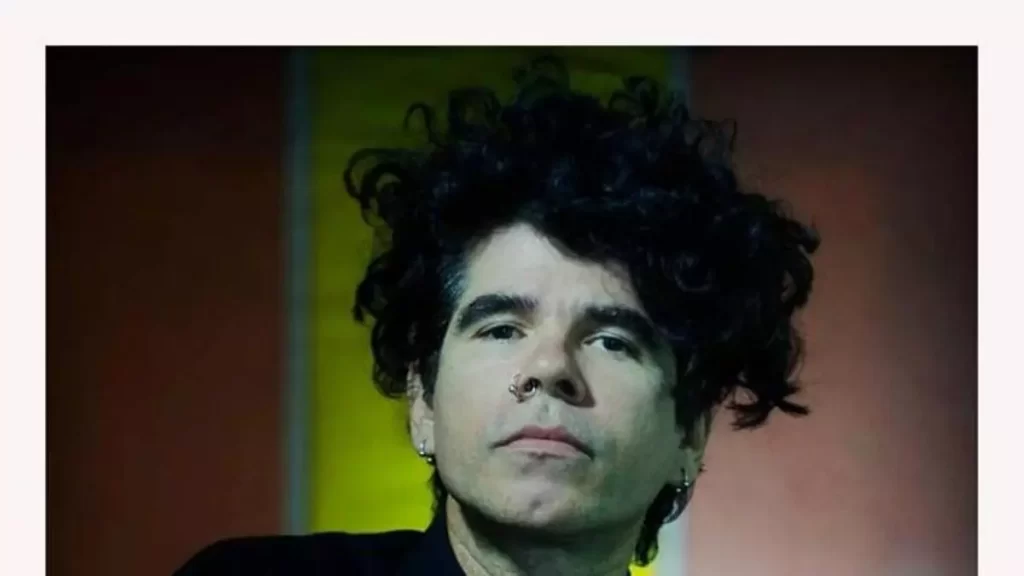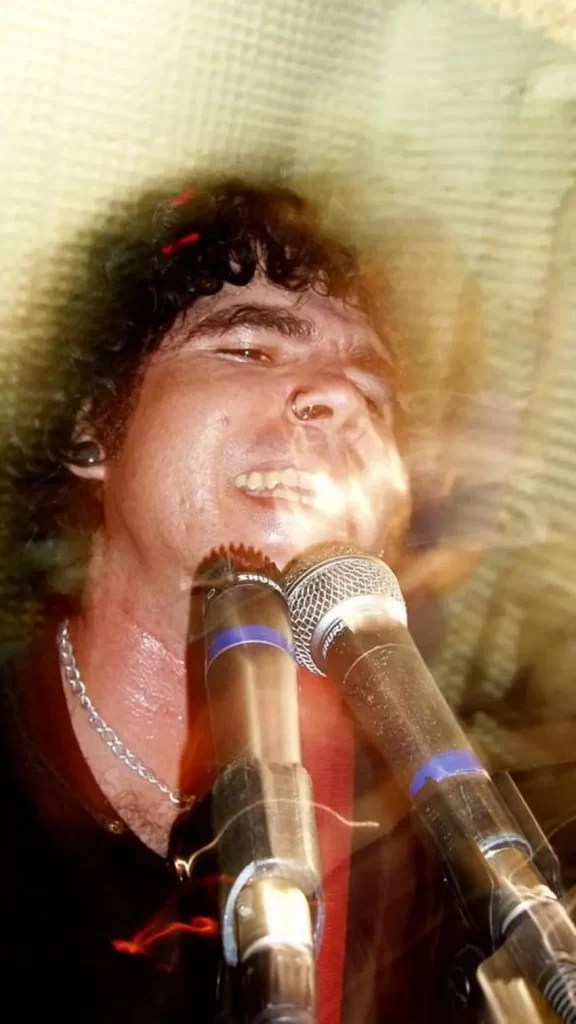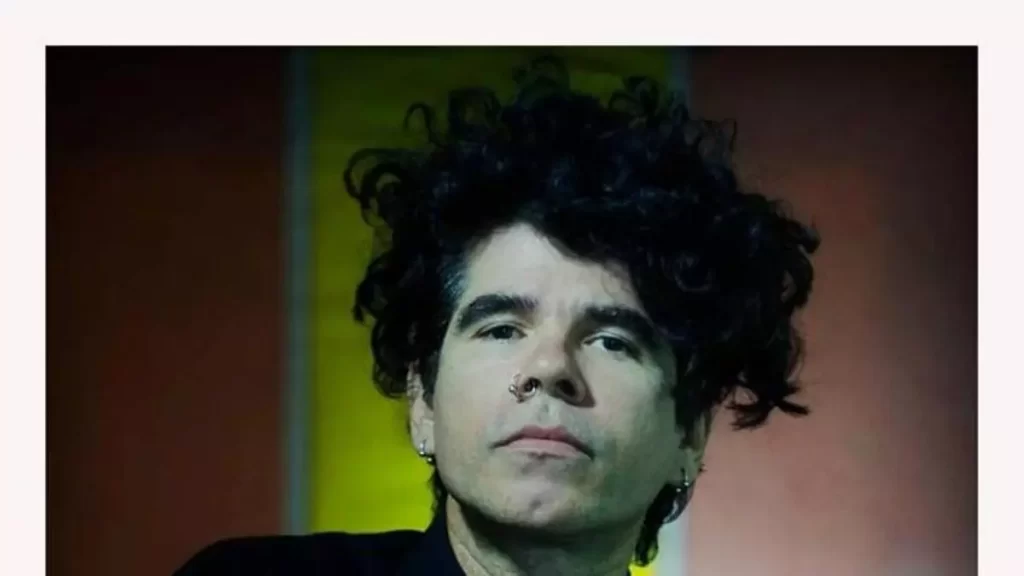- ’14ymedio’ interviews the musician Gorki Águila in a place in Mexico that we are hiding for his safety
- “My plans were in Cuba, where I have my artistic project”
- “I am in a dreadful loneliness; I have a growing resentment towards the communist regime every day”
- “I want to overthrow the Castros, I don’t want to f’ing reform communism at all”

14ymedio, Adyr Corral, Mexico, 15 July 2024
MEXICO/Scene 1
Gorki Águila waits impatiently on a park bench located in a part of Mexico that he expressly asked not to be revealed, for security reasons. The 55-year-old musician left Cuba in mid-May, after being threatened by the regime with serving a sentence of at least four years for contempt. Months after the incident, he is still afraid of what could happen to him, and he does not allow photographs either, as that would make it easier for political police agents to find his location.
While he suspiciously puffs on a cigarette, the musician reveals to 14ymedio that he has received threats from State Security since his first day here: “They wrote to my WhatsApp. As soon as I set foot in Mexico, they asked me, as if they were my friends: ‘Is everything okay, were you able to talk to your family?’ They know where my family lives,” he says, while showing his phone screen with the conversations.
The leader of the Cuban punk band Porno Para Ricardo now works in a musical instrument store to support himself. He arrives at the appointment wearing black pants and a jacket with a white shirt. Mexicans who pass by, sense from his aura, without really knowing who he is, that they are in the presence of a rock star and they direct phrases at him in the form of compliments such as “Long live rock, Robert Smith”, in reference to his resemblance to the singer of The Cure, the English post- punk band, who wears a haircut similar to his.
“They humiliated me and lowered me to a level… I spent almost 15 days crying and not being able to speak. “I arrived with a deep post-traumatic stress”
His new fans also do not imagine that, at the beginning of May, the political police prevented him from boarding a plane that would bring him to Mexico in his first attempt to leave Cuba after receiving an ultimatum, under the argument that it was regulated. Or that, on that very occasion, State Security agents detained him at José Martí International Airport in Havana and later imprisoned him in their barracks to intimidate him.
“They humiliated me and lowered me to a level… I spent almost 15 days crying and without being able to speak. I arrived with deep post-traumatic stress. The protocol for you to go in there is that when you enter, you lower your head against the floor of the patrol car, and it made me extremely dizzy, because the patrol car started spinning, fffff! fffff! So that you don’t know where you’re coming in”, he says about his stay at Villa Marista [a pre-Castro private Catholic school turned into a high security prison].
14ymedio. Why did you come to Mexico?
Gorki. I didn’t choose to come. No, no, I came because I had my residency, so I didn’t need to get a visa, but State Security wanted me to leave. They spoke to me: “Either we’ll put you in prison or you’ll leave”. It’s not just me, they have done it to many opponents.
14ymedio. They told you: you are going to jail or you are leaving Cuba and you preferred…
Gorki. Prefer? No, I did not prefer, I am here under state coercion. I would be in Cuba, you understand? When I went to the airport, they told me, you’re not going to leave and I’ll explain why, because they wanted me to tell them when I left… They knew I was going to Mexico, but they wanted to know what day I was leaving, to carry out an operation and record me on video.
14ymedio. Like a kind of political victory?
Gorki. Yes, and also take those images to later perhaps, perhaps, discredit me. Because I go out with them at the airport, just like that, talking and them making jokes with me, as if they were my family: “Heh-heh. Gorki, you screwed that little girl.” They were making stupid jokes and obviously I didn’t pay attention to them, though I may have laughed at times, I don’t know. And that is filmed by airport cameras. They’re going to use that, obviously.

Scene 2
Gorki rummages through the school-style backpack, black with striking orange stripes on the sides, that he has with him. After searching through his belongings with his hand, he takes out a cigarette and lights it while he recounts part of the interrogation he had when he was detained in Villa Marista. “The guy sits next to me and tells me: ‘Look, we’re going to help you, you have a crime of contempt that has a penalty of at least four, five or ten years. But we’re going to help you. We’re going to give you a chance,” he says in a fake voice, as if to give more theatricality to the anecdote.
He takes a couple of drags on the cigarette and the smoke makes his eyes narrow as he continues with his story. “They said something so clownish, so ridiculous, with a conviction: ‘We are going to help you within socialist legality’. At that moment, I should have said, seriously… Seriously? I have a more or less minimal IQ, the southern hemisphere of my brain works….” At that moment, a young boy who must not be older than 17 interrupts him and the interview is abruptly suspended.
“Excuse me brother, I heard that you are a guitarist. I would like to give you this drawing. I hope you like it” – says the little boy, extending to the musician a sheet with a fairly abstract sketch drawn freehand with a pencil and that from the corner of his eye looks like the portrait of a humanoid figure with reptilian features.
– How cute, huh.
– Thank you for accepting it, the kid responds and then the novice cartoonist threatens to walk away but Gorki prevents him from doing so.
– Hey man, come. Let’s see if I have ten pesos, he says as he digs through his backpack again, this time looking for some change.
14ymedio. What was your routine like in Cuba and how has it changed in Mexico?
Gorki. I’ll be honest with you, the difference for the better is that I have guaranteed coffee, that I have a little bit, that is, condensed milk to add to my coffee and I have bread, guaranteed. It’s so easy to eat here, it even surprises me. Everyday life in Cuba was “wha


